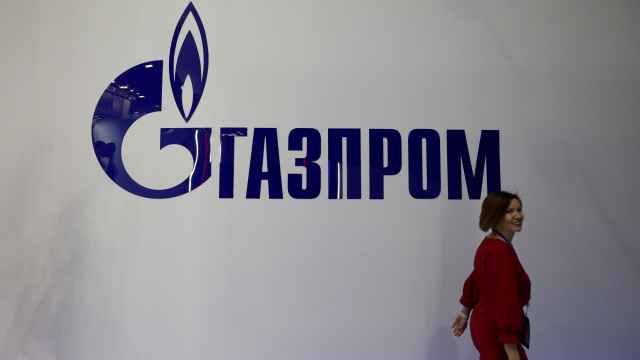Russia's energy giant Gazprom said Wednesday it had stopped all gas supplies to Poland and highly dependent Bulgaria after not receiving payment in rubles from the two EU members.
President Vladimir Putin last month said Russia will only accept payment for deliveries in its national currency, with buyers required to set up ruble accounts or have their taps turned off.
Gazprom said in a statement it notified Bulgaria's state-owned gas operator Bulgargaz and Poland's PGNiG gas firm about the "suspension of gas supplies from April 27 until payment is made" in rubles.
"Starting April 1, payments for gas need to be made using new bank details, about which the counterparts were informed in a timely manner," Gazprom said.
The energy giant also warned that if Bulgaria or Poland make an "unauthorized withdrawal" of Russian gas that is transiting to third countries, "supplies for transit will be reduced by this volume."
The speaker of Russia's lower house of parliament Vyacheslav Volodin said it was the "right decision" to cut off gas to Poland and Bulgaria, and Russian lawmakers "support it."
The State Duma speaker said the leaders of the two countries did not want to "take advantage" of Putin's proposal to pay in rubles.
"Let them explain to their citizens how they will get out of this situation and whose interests they were guided by when making such a decision," he said.
Both Poland and Bulgaria — which is almost completely dependent on Russia for its annual consumption of gas — said they were notified by Gazprom on Tuesday that supplies would be cut off the next day.
Bulgaria's economy ministry said the country "fully met its obligations and has made all payments required under its current contract in a timely manner."
Prime Minister Mateusz Morawiecki said Poland's gas storage facilities were 76% full and that the country was ready to obtain necessary supplies from sources other than the Yamal pipeline.
A Message from The Moscow Times:
Dear readers,
We are facing unprecedented challenges. Russia's Prosecutor General's Office has designated The Moscow Times as an "undesirable" organization, criminalizing our work and putting our staff at risk of prosecution. This follows our earlier unjust labeling as a "foreign agent."
These actions are direct attempts to silence independent journalism in Russia. The authorities claim our work "discredits the decisions of the Russian leadership." We see things differently: we strive to provide accurate, unbiased reporting on Russia.
We, the journalists of The Moscow Times, refuse to be silenced. But to continue our work, we need your help.
Your support, no matter how small, makes a world of difference. If you can, please support us monthly starting from just $2. It's quick to set up, and every contribution makes a significant impact.
By supporting The Moscow Times, you're defending open, independent journalism in the face of repression. Thank you for standing with us.
Remind me later.






